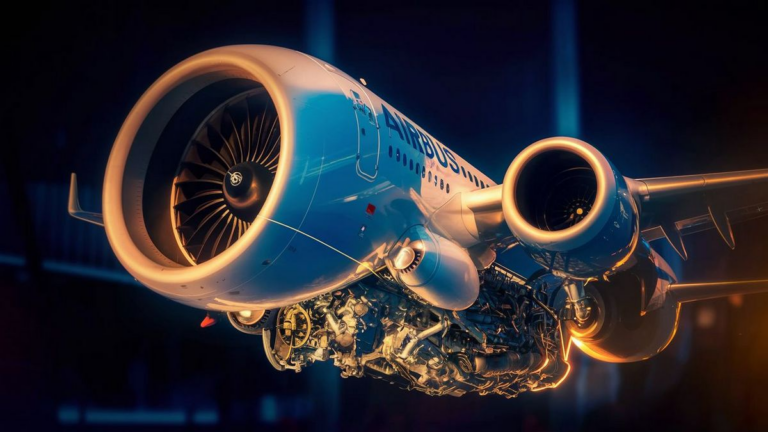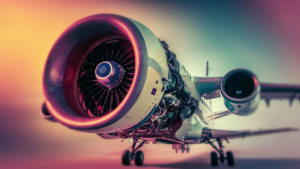When it comes to the powerhouse of aviation, the Airbus A321 stands out as a marvel of modern engineering. This narrow-body, twin-engine jetliner has become a staple in the fleets of airlines worldwide, renowned for its efficiency, versatility, and reliability.
Overview of Airbus A321
The Airbus A321 is a member of the highly successful Airbus A320 family, which includes various models tailored to different needs in the commercial aviation sector. As the longest and largest variant of the A320 family, the A321 offers impressive capacity and range, making it suitable for both short-haul and transcontinental flights.
The Heart of the Airbus A321: Engine Manufacturer
The engines powering the Airbus A321 play a pivotal role in its performance and capabilities. The manufacturer of these engines is Pratt & Whitney, a renowned American aerospace manufacturer with a rich history dating back over a century. Pratt & Whitney’s engines are synonymous with innovation, efficiency, and reliability, making them the ideal choice to propel the Airbus A321 through the skies.
Pratt & Whitney PW1100G-JM Engines
The specific engine model utilized in many Airbus A321 aircraft is the Pratt & Whitney PW1100G-JM, which belongs to the company’s highly acclaimed Geared Turbofan (GTF) engine family. The PW1100G-JM engines incorporate cutting-edge technology to deliver superior fuel efficiency, reduced emissions, and lower noise levels compared to traditional jet engines.
Key Features of PW1100G-JM Engines
Some key features of Pratt & Whitney’s PW1100G-JM engines include:
- Geared fan technology for improved fuel efficiency
- Advanced materials for enhanced durability and performance
- Efficient high-pressure compressor design
- Low emissions and noise levels
Benefits of Pratt & Whitney Engines for Airbus A321
The selection of Pratt & Whitney engines for the Airbus A321 brings a host of benefits to both airlines and passengers. These include:
- Enhanced fuel efficiency, resulting in lower operating costs for airlines
- Reduced environmental impact through lower emissions and noise levels
- Improved reliability and durability, ensuring smooth and safe operations
- Extended maintenance intervals, minimizing downtime for aircraft servicing
In conclusion, the partnership between Airbus and Pratt & Whitney has resulted in the creation of a remarkable aircraft in the form of the Airbus A321. With Pratt & Whitney’s cutting-edge engines powering its performance, the A321 continues to set new standards in efficiency, sustainability, and passenger comfort.
Engine Performance and Efficiency
Aside from the manufacturer, understanding the performance and efficiency of the engines used in the Airbus A321 is crucial. The Pratt & Whitney PW1100G-JM engines not only offer exceptional fuel efficiency but also provide impressive thrust, enabling the A321 to achieve optimal performance while minimizing fuel consumption.
Impact on Operating Costs
The fuel efficiency of the Pratt & Whitney engines directly affects the operating costs of airlines. By consuming less fuel per flight hour, airlines can significantly reduce their fuel expenses, contributing to overall cost savings. These savings can be passed on to customers through competitive pricing and improved profitability for the airline.
Environmental Sustainability
Reduced emissions and noise levels are not only advantageous for airlines but also contribute to environmental sustainability. Lower emissions help mitigate the aircraft’s environmental impact, aligning with industry efforts to reduce carbon footprint and comply with stringent environmental regulations. Moreover, quieter engines contribute to noise reduction around airports, minimizing disturbances to nearby communities.
Engine Maintenance and Reliability
Ensuring the reliability and durability of aircraft engines is paramount for safe and efficient operations. Pratt & Whitney’s engines are engineered to withstand rigorous operating conditions while maintaining high levels of reliability. Additionally, the extended maintenance intervals offered by these engines reduce the frequency of maintenance checks, enhancing aircraft availability and minimizing disruptions to flight schedules.
Technical Support and Service
Besides the engine itself, the availability of comprehensive technical support and service is essential for operators of the Airbus A321. Pratt & Whitney provides a global network of maintenance facilities and service centers, ensuring timely support and assistance to airlines worldwide. This robust support infrastructure enhances the overall ownership experience and instills confidence in the reliability of Pratt & Whitney engines.
Frequently Asked Questions
Here are some frequently asked questions regarding the engines of the Airbus A321:
| Question | Answer |
|---|---|
| 1. What is the name of the engine manufacturer for the Airbus A321? | Pratt & Whitney is the manufacturer of the engines powering the Airbus A321. |
| 2. What is the specific model of engine used in many Airbus A321 aircraft? | The Pratt & Whitney PW1100G-JM engine is commonly used in Airbus A321 aircraft. |
| 3. What are some key features of the Pratt & Whitney PW1100G-JM engines? | Key features include geared fan technology, advanced materials, efficient compressor design, and low emissions/noise levels. |
| 4. How do Pratt & Whitney engines benefit airlines and passengers? | Benefits include enhanced fuel efficiency, reduced environmental impact, improved reliability, and extended maintenance intervals. |
See also:






